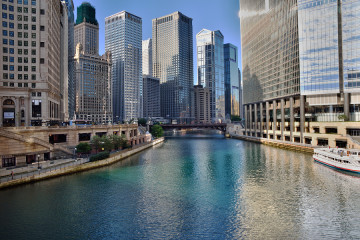Islamic State Spreads in North Africa in Attacks Ignored by West

©2016 Bloomberg News
O455FL6S9728
(Bloomberg) — The Islamic State fighters appeared at dawn in the Tunisian town of Ben Guerdane, attacking police and army barracks. Last week’s clashes killed at least 58 people, including 46 militants and a 12-year-old girl. Tunisia is no stranger to jihadist violence — three large-scale assaults last year decimated its tourism sector — but it’s the first time militants have attempted to seize territory.
The people of this desert crossroads helped turn the tide, hurling stones at militants as security forces engaged them. After 1 1/2 hours, the gunmen, some of whom had trained in neighboring Libya and smuggled weapons across the border, were on the run.
“We lived through an actual occupation by Islamic State,” said Mohsen Lechihib, local head of the Tunisian General Labor Union. “We thought Ben Guerdane would fall into their hands.”
The incident serves to remind the world of the risks an unraveling Libya poses across North Africa. Algeria, struggling under the decline in oil prices as it tries to partner with the West against Islamist militancy, went on high alert. Tunisia imposed a curfew and closed border crossings. Ben Guerdane is on lockdown, with shops and schools shut and security forces posted behind sandbags at checkpoints and on rooftops.
It may not be enough. In the five years since Muammar Qaddafi was ousted as Libya’s leader with the help of NATO-led airstrikes, the country has gone into free fall. Attacks on oil installations have slashed production and, along with declining global crude prices, are depleting state coffers. About 2.4 million Libyans are in need of immediate humanitarian assistance. A power vacuum has allowed people traffickers to thrive and Islamic State to grow along the southern shores of the Mediterranean — and the U.S. and the European Union have done little to to turn things around.
Western intervention, in fact, may have helped trigger the attack on Ben Guerdane. It came after U.S. air strikes hit the Libyan city of Sabratha just across the border, part of an effort to squeeze the extremist group. Diplomats are trying to bring warring factions together in a United Nations-backed unity government, which could request further military help in accordance with a UN resolution adopted in December.
Attack Prediction
“They have become exposed, so they needed to use the opportunity to retaliate,” said Mohamed Eljarh, a non-resident fellow with the Washington-based Atlantic Council. “As action in Libya looms, Algeria, Tunisia and the Sahel region will bear the brunt of this action outside of Libya. There will be more of these city-based attacks to destabilize countries.”
Islamic State’s new leader in Libya, who calls himself Abdel Baqer Al-Najdi, last week said jihadis were flocking to join his ranks. The group’s local affiliate, based in the coastal city of Sirte, may now have as many as 6,000 fighters, the U.S. estimates. Al-Najdi taunted that nearby nations won’t be able to defend themselves.
Western officials are belatedly recognizing that Islamic State’s progress in Libya risks creating another jihadist bastion, with all that entails for European security.
‘New Somalia’
“We cannot allow ourselves to have a new Somalia, given that much of the migrant flows, especially with the closure of the Balkan route, could focus again on Libya,” said Senator Nicola Latorre, president of the Rome upper house’s Defense Committee.
Military officials from more than 30 countries met near Rome Tuesday to plan for possible support for a new Libyan government. According to an Italian official, nations including Britain and France could contribute several thousand ground troops to guard government offices, industrial plants and oil fields, and help train the police and armed forces.
EU Foreign Policy chief Federica Mogherini said “the volatile situation” meant more than 450,000 refugees “could be potential candidates for migration to Europe.” Libya is already feeding the biggest migrant crisis since World War II, which in turn fuels political turmoil in the EU and threatens the passport-free travel zone. European trade and energy ties to North Africa would also be at stake if unrest deepened. And there’s concern about radicalization and possible terrorism in Europe’s large North African immigrant communities.
Unity Government
The unity government was gearing up to assume power in Tripoli this week, despite having no formal endorsement from either of Libya’s two feuding administrations. The House of Representatives fled to the east in the summer of 2014 after the post-Qaddafi transitional body it was supposed to replace, the General National Congress, refused to hand over power. The UN hopes it will manage to assert its authority over state institutions and secure support from most of the population by mid-April.
“Islamic State is not invincible,” said Mattia Toaldo, an analyst at the European Council on Foreign Relations in London. “I hope this unity government will gain legitimacy, maybe with a vote sometime in the future. If that doesn’t happen and we think we just can have some airstrikes, then the outlook is negative and chaos will break out.”
That’s already a worry in Ben Guerdane, a town of 80,000 people in Tunisia’s southeast, where residents have long complained of economic and social marginalization. “What happened in Ben Guerdane is a disaster,” said Maryem Jliti, 46. “The government must move, otherwise the danger will expand.”
Both Tunisia and Algeria, which objected to the NATO-led bombing campaign in Libya in 2011, oppose outside intervention in Libya, saying it would only make matters worse. The pressure comes at a bad time for Algeria. The global plunge in crude prices is making it harder to afford expensive subsidies that help fend off discontent, and coincides with mounting concern over the health of ailing 79-year-old President Abdelaziz Bouteflika.
In Ben Guerdane, Mabrouk Mouathek, father of 12-year-old Sarah, who died in a crossfire in the attack, says residents are more determined than ever not to let Islamic State win.
“We won’t fall into the same trap that others fell into because we see every day what they do in Syria, Iraq and Libya,” he said. “If they return, I’d sacrifice all my children. We will not let them rule us.”
–With assistance from Ghaith Shennib and Gregory Viscusi.
To contact the reporters on this story: Jihen Laghmari in Ben Guerdane at jlaghmari@bloomberg.net; Caroline Alexander in London at calexander1@bloomberg.net; John Follain in Brussels at jfollain2@bloomberg.net To contact the editors responsible for this story: Alaa Shahine at asalha@bloomberg.net Anne Swardson, Mark Williams







No Comment